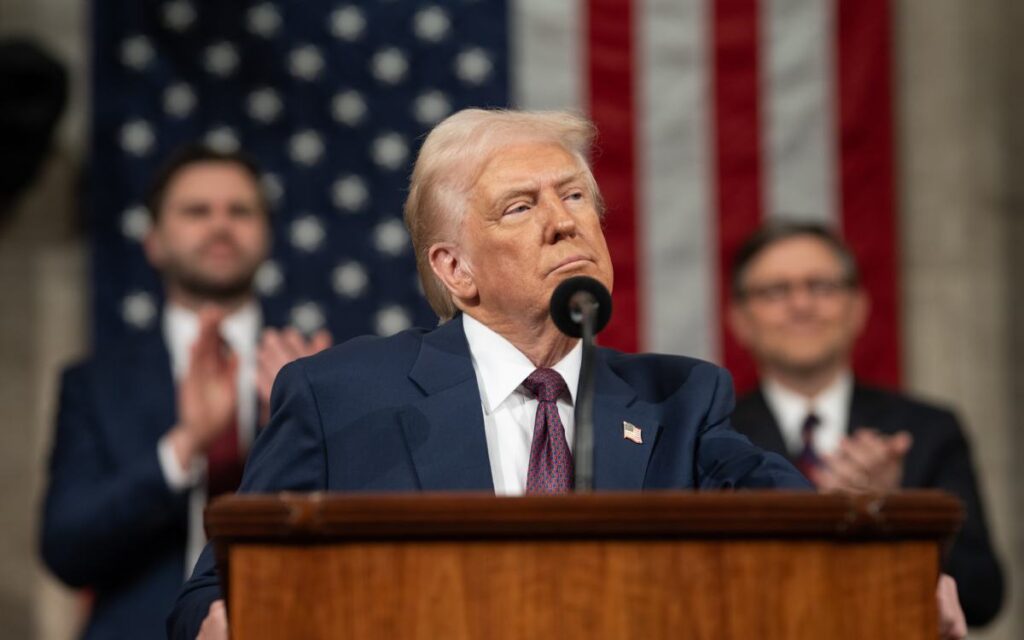
Canada must course correct on the very clear vulnerabilities to our national and economic security. Pictured: U.S. President Donald Trump. Photo Credit: Donald Trump/X.
President Donald Trump’s tariffs came into effect this week and as expected, they created the exact type of chaos that was a signature hallmark of his first term in office. Global stock markets plunged after Trump announced on Monday that there would be no off-ramp for Canada and Mexico in the final hours before implementation, and corporations on both sides of the border were busy sorting out the implications for supply chains, customers, and their bottom lines.
In response to the implementation of the U.S. tariffs, federal and provincial leaders announced a slew of retaliatory measures intended to show that Canada wouldn’t roll over and accept the punishment inflicted. Though the Canadian counter-response pales in comparison to the damage Trump is intentionally inflicting here in Canada, as well as on his own side of the border, it is a necessary evil in a negotiation that even if resolved in the short-term will likely haunt us for the duration of his presidency.
While the tariffs dominated the headlines this week, Trump’s foreign policy agenda has broader implications that go beyond trade disruptions, including for Canada’s security and international standing. In an effort to negotiate a peace deal between Russia and Ukraine, Trump announced that the U.S. would pause intelligence sharing with Ukraine in an effort to “review all aspects of this relationship.”
According to media reports, talks between the U.S. and Russia are also in progress to determine whether there is a path to economic cooperation through the Arctic, including through natural resource exploration and trade routes.
The United States, once the biggest funder of financial and military aid in Ukraine’s war efforts, is now not only kneecapping Ukraine’s ability to an effective campaign against Russia, but also playing an active leadership role in conversations that would see Russia play an outsized role in retaining control over one of the last military strategic outposts.
The events over the course of the last month serve as a warning to Western democracies that the new world order means America may be at best a fair-weather friend, and at worst, an enemy. It is no longer sufficient to count on the fact that the integrated nature of our two economies guarantees our safety or security within the shifting geopolitical landscape.
As the U.S. shifts its role in global security, Canada faces a critical opportunity to recalibrate its defence priorities. Will federal leaders rise to the challenge and invest in military capabilities, or will they cling to outdated strategies that fail to address evolving threats?
Even if Trump does capitulate on his tariff war, Canada must course correct on the very clear vulnerabilities to our national and economic security. With an election around the corner, it is time to debate the merits of defence policy, so that the next government can better secure Canada against existing and emerging threats.
Current events may be dictating the need for increased defence spending, but the public seems to also be looking at the threat landscape with a new sense of urgency. Politicians should take note.

Josie Sabatino is a Senior Consultant at Summa Strategies, focused on providing strategic insight and helping clients meet their objectives in an ever changing and complex political and regulatory environment. Prior to joining Summa, Josie spent nearly a decade in political communications and most recently served as the Director of Communications to the Hon. Erin O’Toole, former Leader of the Official Opposition.








